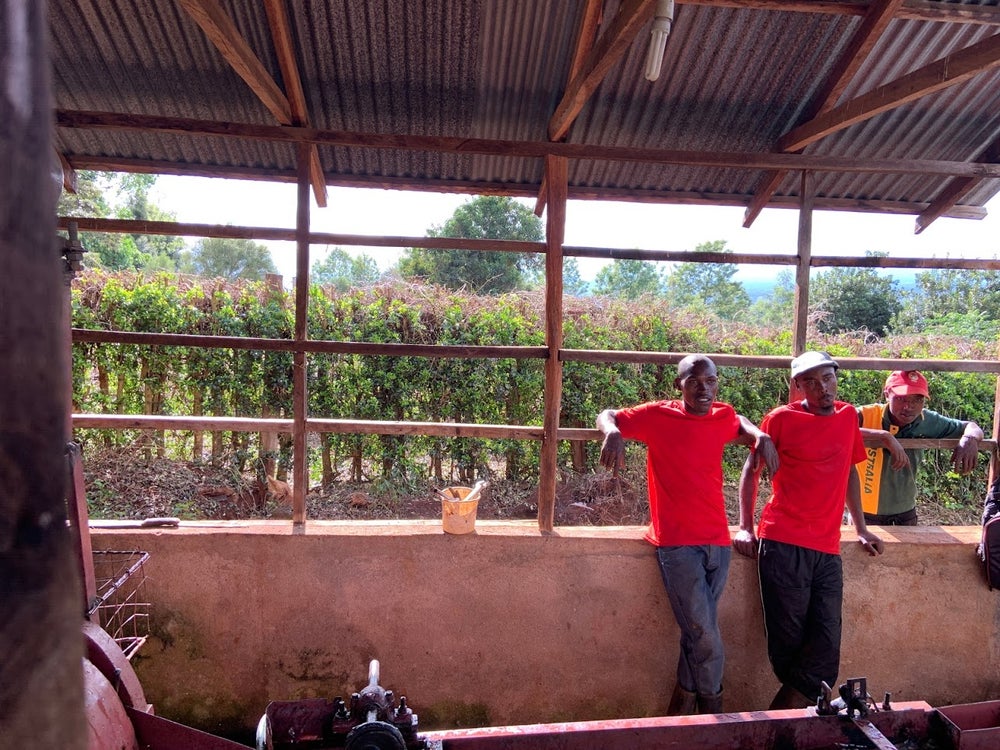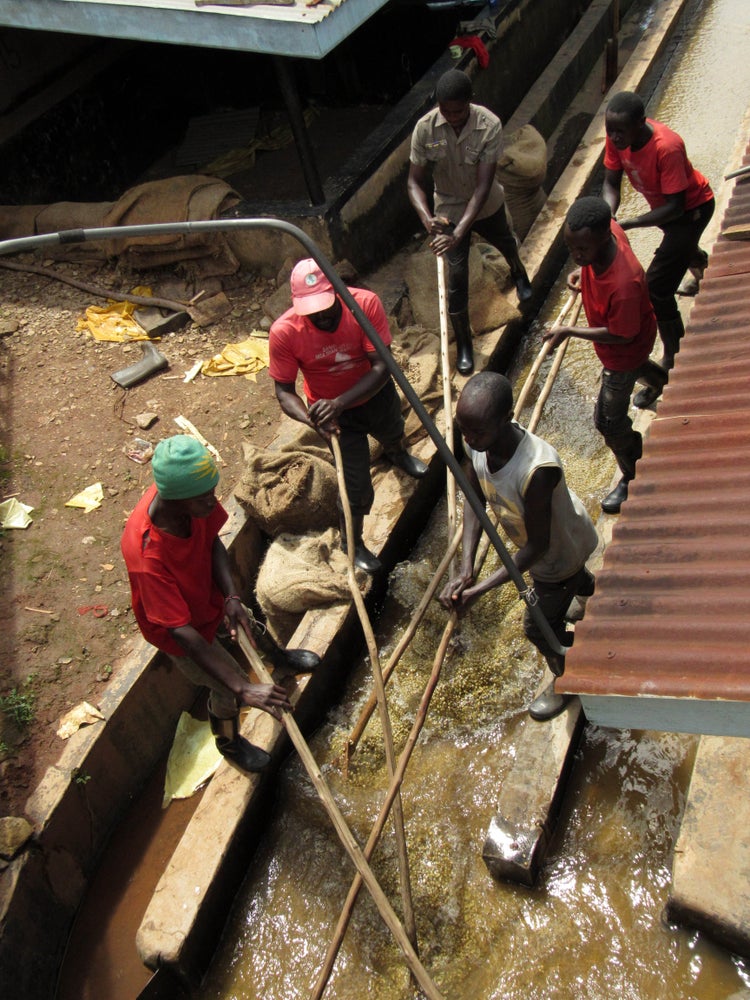About This Coffee
This coffee was grown by smallholder farmers living in and around Nguku Factory in Kenya’s Murang’a County. Farms sit at altitudes of 1,700 to 1,900 meters above sea level along the western slopes of the Aberdare Mountain range. The climate and geography of Murang’a, particularly in this area, are well-suited for coffee production. The county boasts the fertile red volcanic soil and cool temperatures that coffee loves and for which this renowned growing region is known.
Nguku is one of four factories (as wet mills are known in Kenya) operated by the Kahuhia Coffee Growers Cooperative Society (CGCS). Kahuhia CGCS, in total, has approximately 3,000 active members.
Harvest & Post-Harvest
Farmers selectively handpick cherry and deliver to Nguku factory the same day. Cherry is sorted at intake where under- and over-ripes, along with any foreign matter, are removed. The role of the cherry clerk, who must ensure that only the ripest cherry is processed, is of paramount importance. Farmers will not be allowed to submit sub-par cherry and must take any rejected cherry home with them to dry on beds or mats. This cherry can then be submitted at the end of the season as mbuni grade for a much lower price. In this way, farmers are incentivized to only pick cherry that is truly at its peak.
Cherry moves straight from intake to the hopper and is pulped using a disk pulper. Pulped cherry is fermented and then washed with water to remove any remaining mucilage. Parchment is pre-dried and then moved to raised beds to finish drying. Here, it is turned regularly to ensure even drying and is covered at the hottest part of the day and during evenings to prevent cracking and/or condensation. Drying time is usually around two weeks and depends on the weather at the time.
Once dry, parchment is delivered to Kahawa Bora Millers, one of our sister companies in Kenya. The mill has the capacity to mill smaller lots separately to help preserve quality and traceability.
About Peaberries
PB stands for peaberry. Peaberry is a name given to a very specific shape of coffee bean. In Spanish, peaberries are called “caracol”, which means “snail”. The name aptly describes the shape of the peaberry bean, which appears slightly curved in on itself.
Peaberries are the result of a natural mutation in the coffee cherry. Whereas there are usually two beans nestled together in each fruit, a cherry with a peaberry mutation only forms one bean. Thus, peaberries are a single, rounder bean.
Peaberry mutations occur in approximately 5% of all coffee. The beans are known for being rounder, smaller and denser, which can contribute to a more even roast color when handled correctly. Many people find peaberries to have a sweeter flavor profile, as well.
Since peaberries are a natural mutation that is not visible from the outside of the cherry, peaberries must be sorted out during the screen grading stage of dry milling. The peaberry screens have the smallest holes, which are oblong to allow the rounder beans to fall through.
Coffee in Kenya
Though coffee growing had a relatively late start in Kenya, the industry has gained and maintained a impressive reputation. Since the start of production, Kenyan coffee has been recognized for its high-quality, meticulous preparation and exquisite flavors. Our in-country sister company, Sucafina Kenya, works with farmers across the country to ensure these exceptional coffees gain the accolades they deserve.
Today, more than 600,000 smallholders farming fewer than 5 acres compose 99% of the coffee farming population of Kenya. Their farms cover more than 75% of total coffee growing land and produce nearly 70% of the country’s coffee. These farmers are organized into hundreds of Farmer Cooperative Societies (FCS), all of which operate at least one factory. The remainder of annual production is grown and processed by small, medium and large land estates. Most of the larger estates have their own washing stations.
Most Kenyan coffees are fully washed and dried on raised beds. The country still upholds its reputation for high quality and attention to detail at its many washing stations. The best factories employ stringent sorting practices at cherry intake, and many of them have had the same management staff in place for years.

